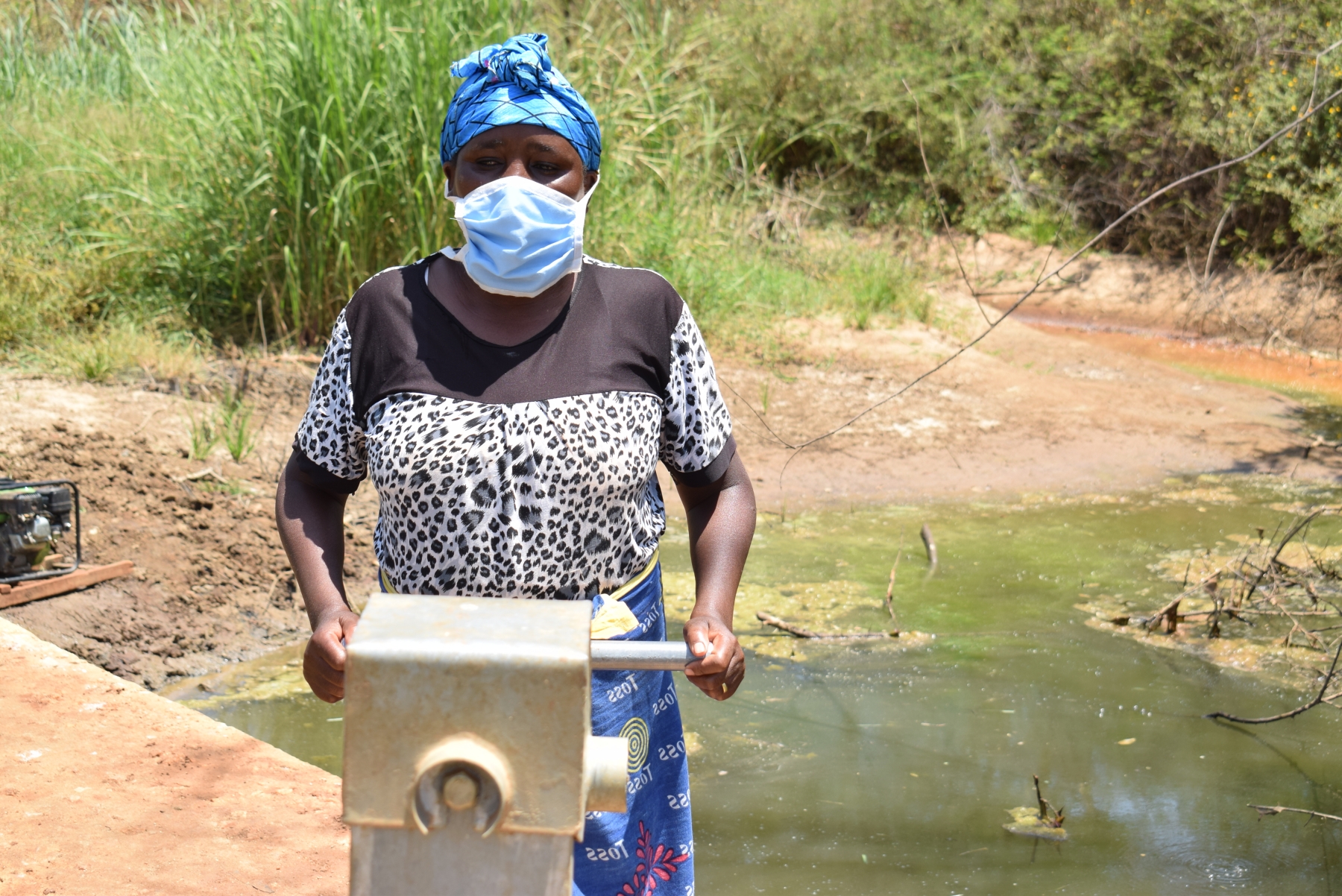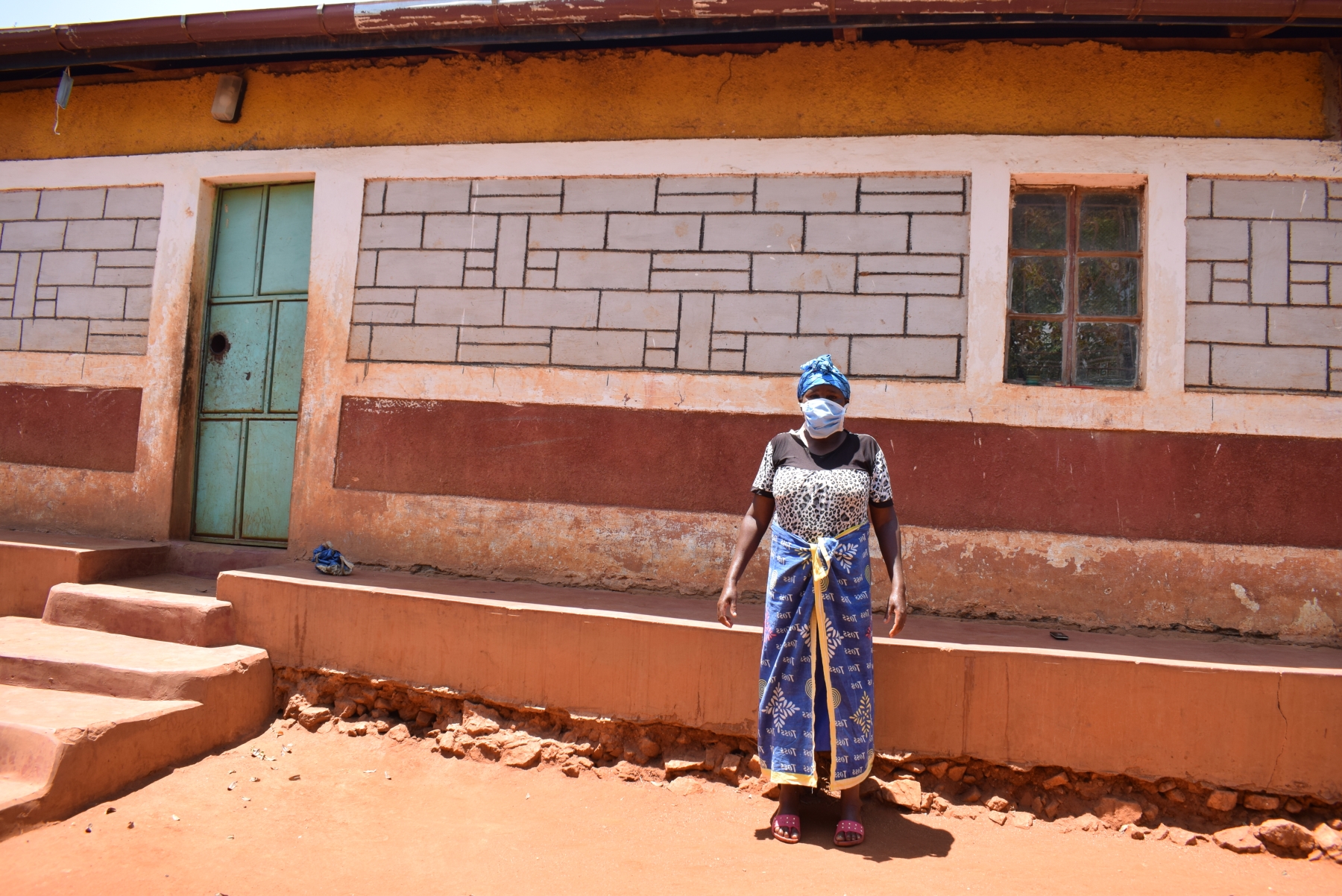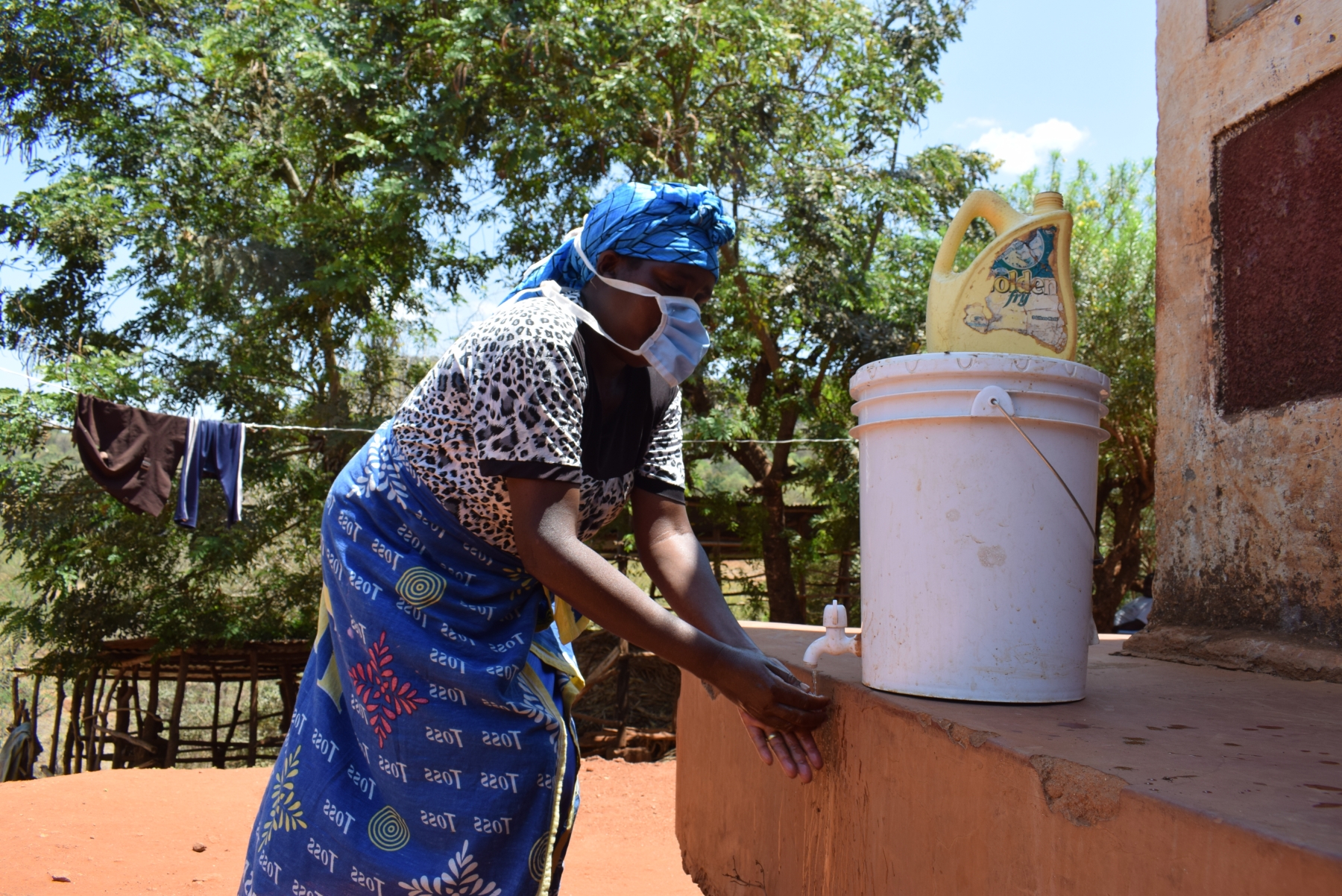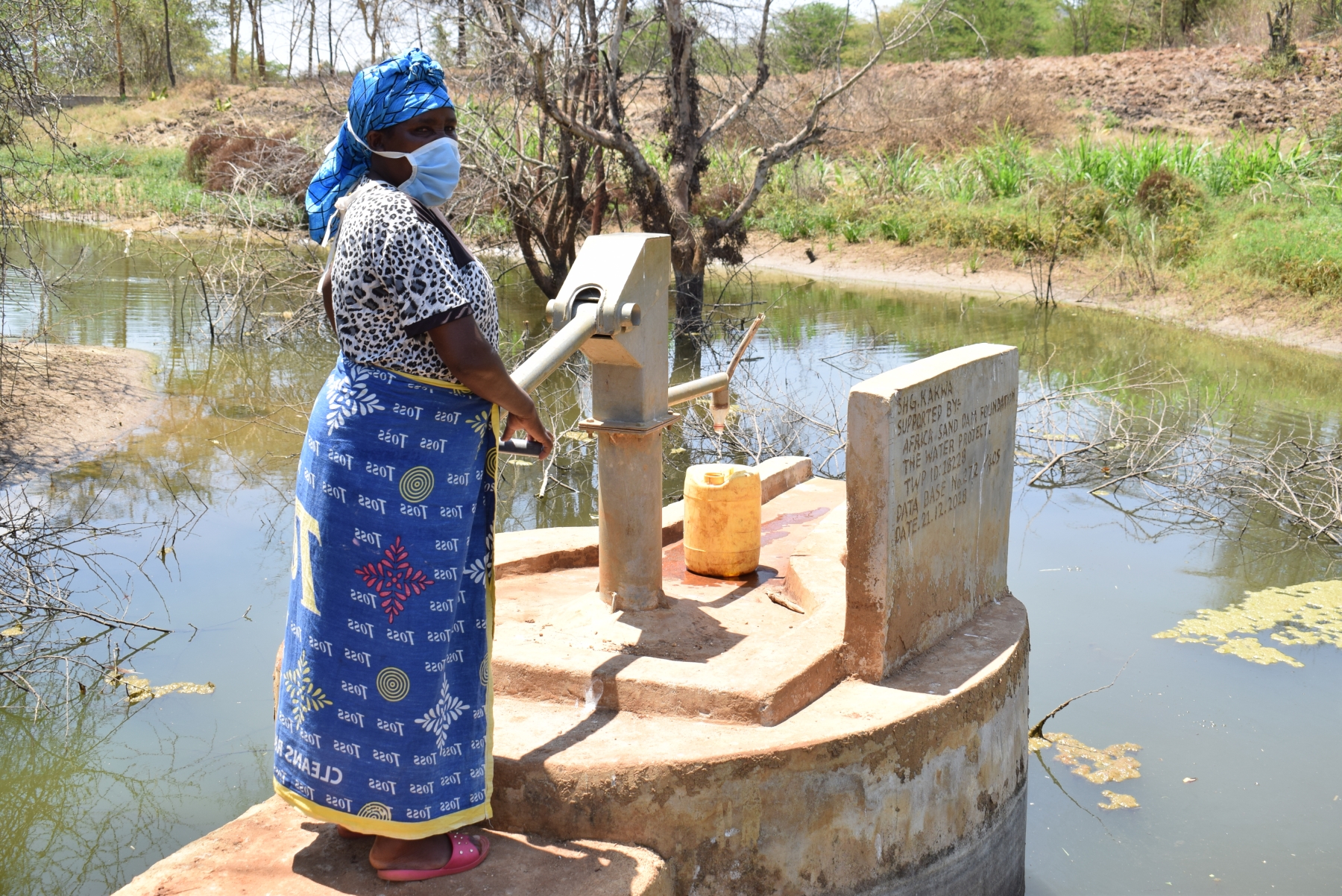Through Their Eyes: COVID-19 Chronicles with Justin Mbila
Our team recently visited Kithumba to conduct COVID-19 prevention training and monitor their water point. Shortly after, we returned to check in on the community, offer a COVID-19 refresher training, and ask how the pandemic affects their lives.

During this most recent visit, Justin Mbila shared her story of how the coronavirus impacts her life and her community.
Field Officer Lilian Kendi met Justin outside her home to conduct the interview. Both Lilian and Justin observed physical distancing and other precautions throughout the visit to ensure their health and safety. The following is Justin’s story in her own words.

What is one thing that has changed in your community since the completion of the water project?
Water is readily available. We no longer go to fetch water far from our homes. Community members are enjoying a surplus supply of water, which they can fetch at any time of the day. We can plant trees and get vegetables easily here at our farms instead of buying them as we used to.
How has having a clean water point helped you through the pandemic so far?
Having a clean water point has helped us a lot in that we fetch water nearer to our homes at no cost and at any time of the day. We use the water for cleaning, bathing, washing our hands frequently and for cooking at our homes.

Since the outbreak of COVID-19 in Kenya, has fetching water changed for you because of restrictions, new rules, or your concerns about the virus?
Yes, fetching water has changed for me. Now, I have to observe social distancing whenever I find another person fetching water at the well. I ensure I wear a mask to protect myself against contracting the virus, and I also wash my hands before and after using the hand pump.
How has COVID-19 impacted your family?
My family was affected because my husband worked as a teacher, and the schools have been closed ever since the onset of the virus. My children have not been going to school—also, the businesses I often engaged in started underperforming. The seasons of selling fruits were disrupted because there were no customers. So the fruit spoiled at the farm.
What other challenges are you experiencing due to the COVID-19 pandemic?
We have experienced harsh economic impacts due to the halt of our businesses. Income-generating activities that we highly relied on are not performing very well due to the unstable economy. Our children no longer go to school as they used to due to the closure of schools.

What hygiene and sanitation steps have you and your community has taken to stop the spread of the virus?
We reduced the visitations we had. Each member now stays at their homes as we are all scared of contracting the virus. We practice social distancing whenever we are out in public. We ensure we wash our hands frequently with soap and clean water.
Like most governments worldwide, the Kenyan government continues to set and adjust restrictions both nationally and regionally to help control the spread of the virus.
What restriction were you most excited to see lifted already?
The cessation of movement was removed, and now we can easily interact with our family members and move from one town to another to conduct business. The lift on the ban of age restriction while attending church was a relief as we could interact with fellow worshippers. The adults are now able to advise the young ones and teach them the right ways.
What restriction are you still looking forward to being lifted?
Opening of schools for all classes so that my children can get back to learning.
When asked where she receives information about COVID-19, Justin listed the radio and our team’s sensitization training.
What has been the most valuable part of the COVID-19 sensitization training you received from our team?
We were taught how to prepare soap to prepare it easily at our homes instead of buying and ensuring we wash our hands with soap and clean water.
How has getting food been at this time?
We did not strain a lot in getting food because we had food from our farms. The only challenge was purchasing food from retail shops as we had insufficient money.
This post is part of a new series by The Water Project meant to highlight the perspectives and experiences of the people we serve and how the COVID-19 pandemic is impacting them. We invite you to read more of their stories here.
Home More Like ThisTweet